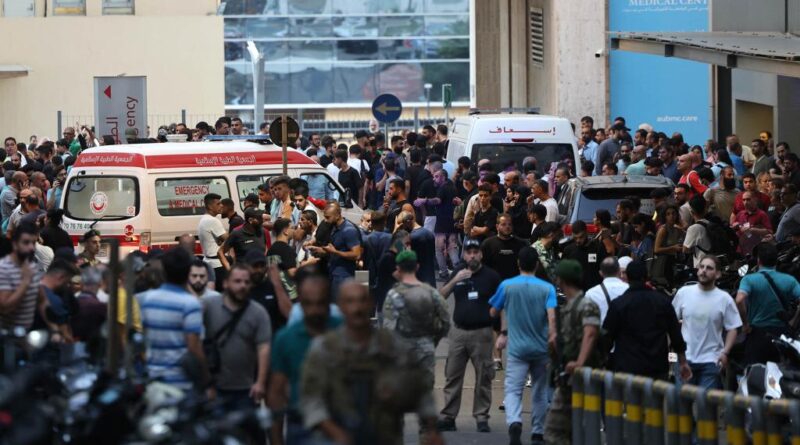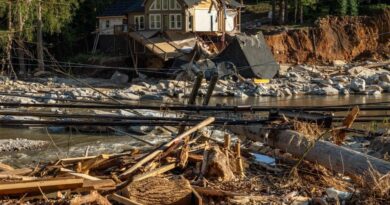Israel uses ruthless psychological tactics to combat terrorism from Hezbollah.

Witnessing humans in agony is unsettling, but Israel’s bold mission to detonate pagers simultaneously in the pockets of Hezbollah terrorists and their affiliates this week was a strategic move.
Videos shared on social media depicted gruesome scenes of men shopping or riding a motorbike one moment, then writhing on the ground covered in blood the next.
At least 12 individuals were killed and close to 3,000 were injured in Lebanon on Tuesday, followed by another attack the next day that killed 20 and injured 450 from a similar detonation of Hezbollah walkie-talkies.
In Hezbollah’s culture, the impact of their members suffering injuries to their private areas is significant, as is the message conveyed to Iran about the lack of safety in communication devices, following Israel’s ability to track Hamas political leader Ismail Haniyeh and eliminate him.
Hence, the shift to more primitive devices like pagers by the terrorists.
The precise operation “Paging Hezbollah” was a surgical strike on terrorists, though Lebanese authorities claimed two innocent children became victims of Tuesday’s attack, adding to the tragic toll of a war initiated by Hamas on Oct. 7 of the previous year.
Democratic Party supporters
Immediately after the operation, Democratic Party members like Rep. Alexandria Ocasio-Cortez condemned Israel fervently, a passion that seems lacking when Israeli civilians are the victims of violence.
For Israel, there seems to be no circumstance where self-defense is acceptable.
Israeli citizens are expected to absorb attacks from their hostile neighbors in the Middle East plotting against their nation.
Since Oct. 7, Israel has faced threats from Iranian proxies surrounding it, from Gaza in the southwest to Lebanon in the northwest, and Iranian-backed militias in Syria to the north.
Iranian-funded Houthi rebels in Yemen pose risks by launching attacks on US Navy ships and threatening the Suez Canal’s shipping activities.
Sudan, with renewed ties to Iran, is now equipped with Iranian weapons, raising concerns about a new threat from that direction.
“Hezbollah is one battleground for Israel,” says Niger Innis, chairman for the Congress of Racial Equality, alerting to the broader influence of Iran across Africa and its implications.
Concerned about Iran’s growing presence in Africa, Innis moderates meetings with experts understanding the severity of the situation, highlighting the regional implications.
“The world is currently in awe of Israel’s technology prowess, but Israel is engaged in a regional battle where Sudan is an Iranian proxy, signaling a significant global threat,” Innis points out.
Iran’s proxies
Amidst these regional tensions, the Biden administration has rekindled the Iran nuclear deal, potentially putting Israel at risk, despite previous financial constraints on Iran.
Following the release of frozen funds to Iran for humanitarian purposes, Iran-sponsored Hamas conducted a ruthless attack on Israel, undermining peace efforts in the region.
In handling the situation, Biden and Harris have displayed partiality towards Hamas, limiting support to Israel and urging restraint in Gaza, where American hostages were seized.
Recent reports highlight mishandling of security concerns by the administration concerning their anti-Israel Iran envoy, raising questions about potential threats.
In light of these revelations, the treatment of the situation by Yale, Princeton, and the Biden-Harris administration is a troubling reflection of American leadership.



